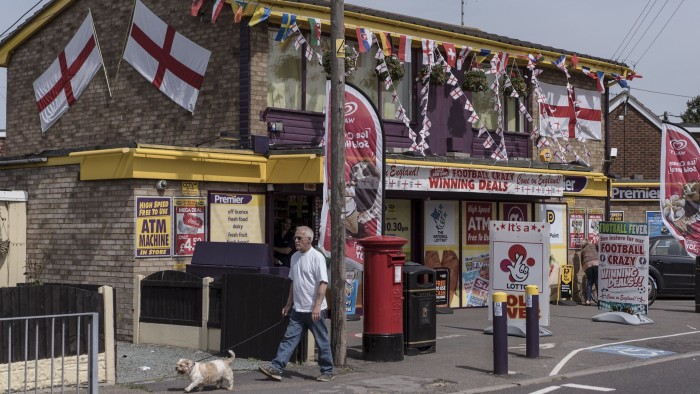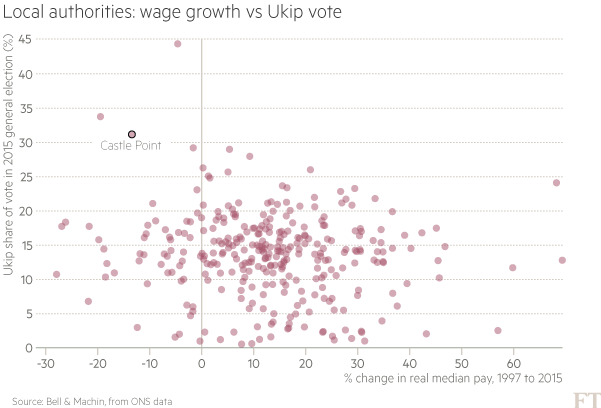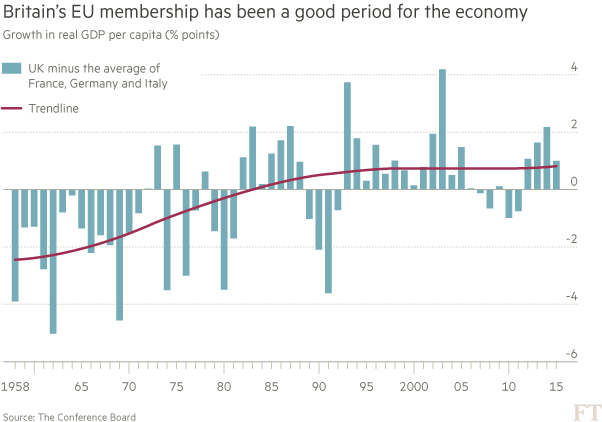UK areas with stagnant wages are most anti-EU

A feeling of anger and frustration with the European Union is strongest in areas of Britain that have seen wages stagnate in recent years, according to research commissioned by the Financial Times.
Two leading labour market economists, Brian Bell and Stephen Machin, found a statistically significant link between wage growth, or the lack of it, and the proportion of the vote secured by the anti-EU UK Independence Party in the 2015 general election.
The correlation between low wages and support for Ukip is particularly striking in the borough of Castle Point in Essex.
Real median wages have dropped by 13 per cent since 1997 and Ukip took 31 per cent of the vote share in 2015.
Anger at “uncontrolled” immigration is often cited as a main driver of Ukip support but in Castle Point immigrants account for only 4 per cent of the population.
Between 1997 and 2015, the median wage in the UK overall rose from £269 per week to £426 per week. But prices rose 43 per cent over the same period, leaving a real gain of just 15 per cent, or less than 1 per cent a year.
Prof Machin said the aggregate figure masked whole areas of the country that had not seen even this modest gain: 62 out of 370 local authorities actually saw median wages fall in the period, with some witnessing double- digit declines.
Ukip flourished in those areas in the 2015 general election, according to Prof Machin. He added that the areas that had seen the smallest growth in real median wages were also more likely to support Ukip, even if in absolute terms, the level of wages was not always among Britain’s lowest.

The campaign for Britain to remain in the EU faltered in those areas. “It may not be too surprising that the arguments failed to resonate with some voters,” he said.
Opposition to EU membership is the defining plank of Ukip’s electoral platform and its leader, Nigel Farage, played a prominent, although controversial, role in the campaign to persuade voters to quit the EU.
Pointing out that, in some areas, an entire generation had lost out on wage growth, Prof Machin said warnings of the economic peril of Brexit “may seem less convincing to people who have not seen any of the prior gains” even though those areas have the most to lose from Britain leaving the EU.
In order to get round the problem of constituency boundary changes over the 18 years covered by the analysis, the academics allocated each constituency to a local authority area: local authority boundaries remained unchanged between 1997 and 2015. The vote in constituencies within each local authority area was then aggregated to calculate Ukip’s share.

Comments